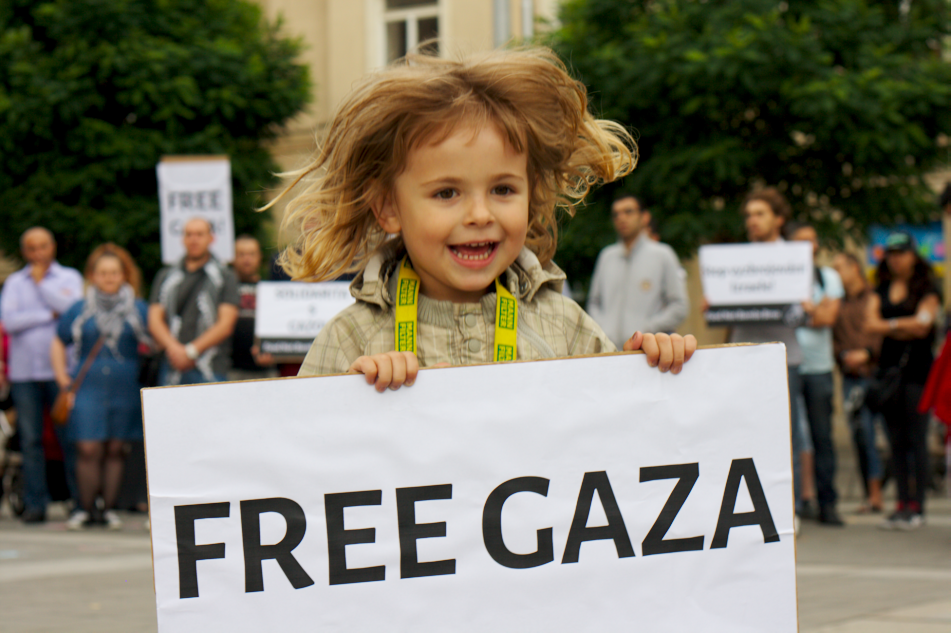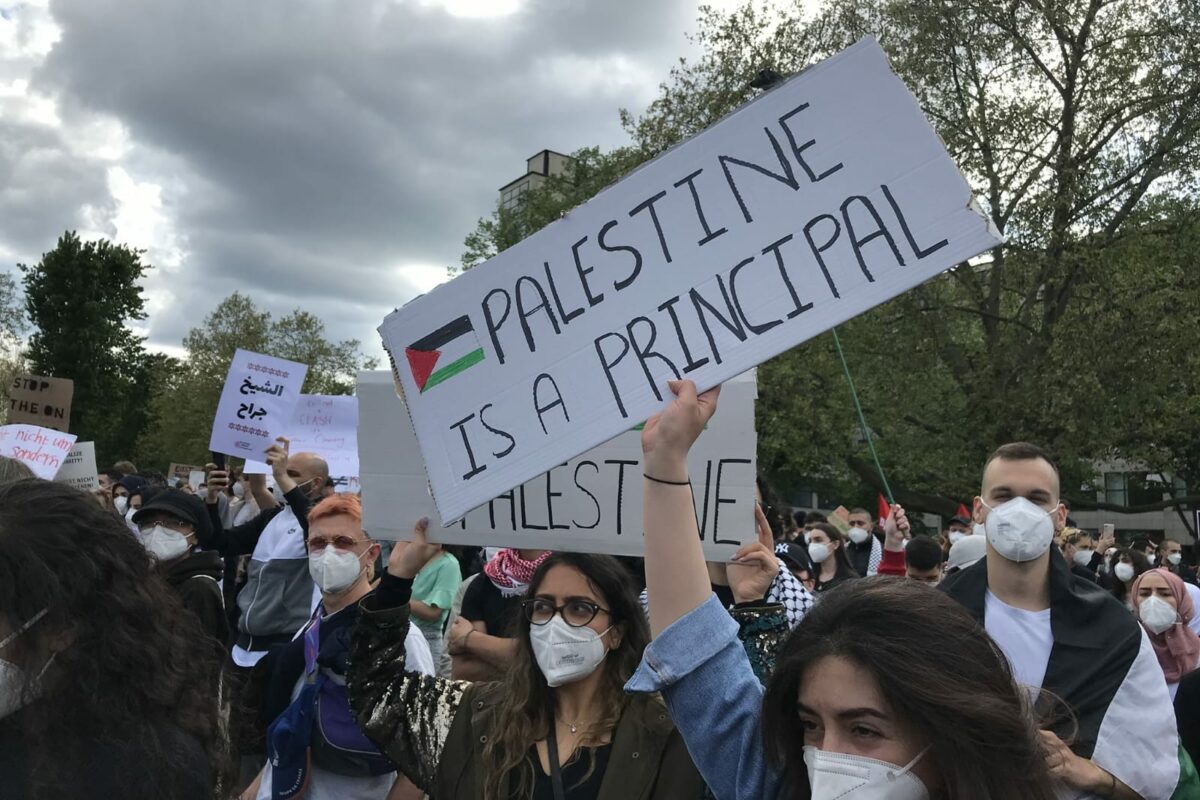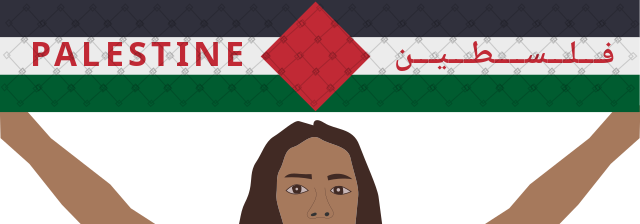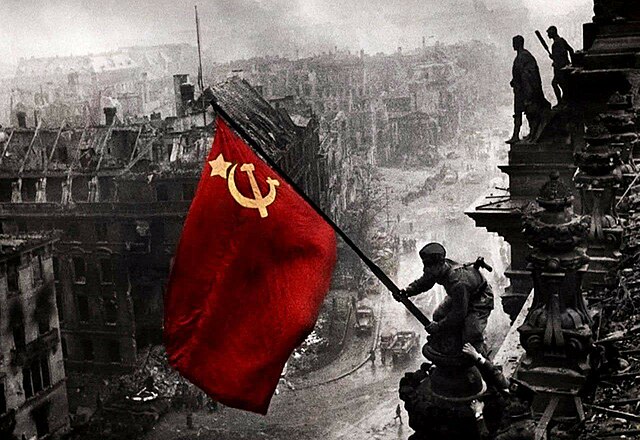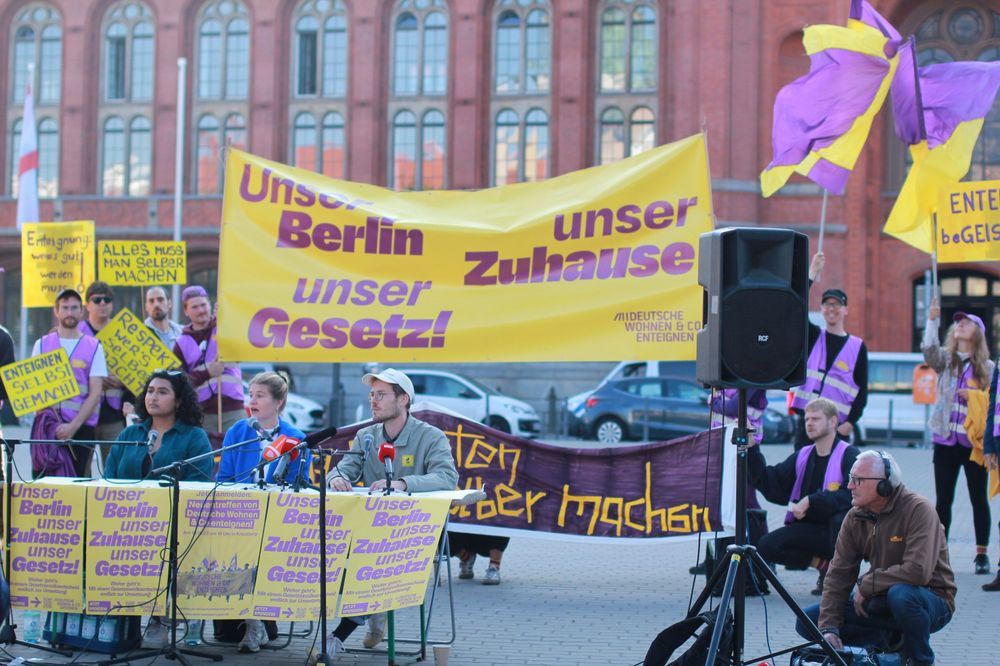After Israel’s extreme right wing government organised a wave of violence against Palestinians in recent months, Hamas struck back with an unexpected counter-attack. In a secretly planned operation, fighters from Gaza broke out of the coastal strip which has been hermetically sealed for the last 16 years, and attacked both military and civil targets on Israeli territory.
According to the Israeli government, the number of dead has risen to more than 700. At least 2,200 people were injured, and at least 100 were captured by Hamas fighters.
State of War in Israel
The Israeli government has proclaimed a state of war, and continuously bombed both military and civil targets in Gaza. The Israeli defence minister Yoav Gallant announced a “total blockade”, including a ban on the import of food and fuel. He described this as part of a war against “brutish people”.
According to the army, so far 800 targets in the Gaza strip have been bombed. Palestinians report that more than 500 people have been killed, and several thousand injured. For example, Israeli forces bombed an eleven story building in the Al-Nasr district in the West of Gaza City. In Khan Younis in the Gaza strip, a mosque was hit by fire and largely destroyed. Electricity has been turned off for the whole enclave with around two million inhabitants.
Israeli prime minister Benjamin Netanyahu called all surviving civilians in Gaza to leave the area. But because of the blockade there are virtually no possibilities to flee. At the same time, the Israeli government is sending 300,000 reservists to the Gaza strip.
Who is to blame?
Even Ofer Cassif, member of the liberal Hadash party and the Israeli senate has said that the Israeli occupation of Palestinian territory and the actions of the government led by Netanyahu are responsible for the death of Israelis and Palestinians. Speaking to Al-Jazeera, he said “It [the casualties] is unacceptable … As long as the occupation remains, this terrible crime will continue … and this is what this government wants.
According to UN figures, between 2008 and 2023 (not counting the victims of recent days), Israeli attacks on the Gaza strip have killed 6,407 Palestinians and wounded 152,560. On the Israeli side, 308 people have been killed in the same period and 6,307 wounded.
The Israeli Government Escalates
Since the formation of the extreme right wing government in Israel, settlers have become even more radicalised. Armed settlers regularly enter Palestinian villages in the West Bank and attack the inhabitants. In this sense, these people are no longer civilians, but armed colonisers and conquistadors.
According to UN reports, this violence of Jewish settlers against Palestinians has risen massively. With around 99 cases per month, there have been 39 per cent more attacks in 2023 compared to the previous year. The actions of the settlers have the backing of the Israeli government and the army leadership, who support their actions.
Only recently, Israeli soldiers also entered the Palestinian village of Ja’bad, attacked Palestinian villagers and shot tear gas into the streets. Every day, houses are destroyed by Israeli forces, olive groves are flattened, and the livelihood of the Palestinians are increasingly taken away.
Gaza: The Largest Open Air Prison in the World
Life in the Gaza strip where land, water, air and even the underground are fully sealed off by Israel is inhumane, even though this is not recognised by the media and the international public. Over 97 per cent of the water in the sealed-off coastal strip is unfit for human consumption.
Power is often only available for 2-4 hours per day. Even the average daily food consumption is limited by Israel to 2279 calories per day. Recently even former generals and Mossad agents have admitted that their actions in Palestine amount to war crimes.
The Hamas Offensive
Israel offered an open flank for the offensive from Gaza because of the deeply broken political environment in the midst of mass protests against the extreme right wing government coalition. In addition, there is the crisis of the occupation architecture in the West Bank which was established by the “Oslo negotiation process”. As the Palestinian Authority acts as the extended arm of the occupation as part of its “security cooperation” with Israel, it is increasingly losing its support from the general public.
In cities like Nablus and Jenin, formerly disbanded PLO militias are reaching once more for their weapons in newly formed military formations together with the Palestinian Islamic Jihad. Gaza seemed to be forgotten for months. Now Hamas is using the situation for an offensive.
Reaction of the Media and Politicians
The reaction of the media and politicians in Germany is one-sided and aimed against the Palestinian liberation movement. Although the attack by Hamas and Palestinian fighters was described as “barbarism”, “terror”, and “unacceptable”, this is exactly the everyday experience of Palestinians in Gaza and the West Bank under Israeli occupation.
It would be a mistake for the Left to follow these politics of our rulers. The delegitimisation of the Palestinian resistance finds its expression in the attacks on Palestine solidarity in Germany: fundamental rights like the right to assembly, freedom of association or speech, and job opportunities are restricted by the repression.
In this context, Micha Brumlik, the educationalist and Senior Advisor to the Centre of Jewish Studies in Berlin-Brandenburg spoke of a “new McCarthyism” (see our FAQ “The Left and Palestine Solidarity”).
Palestine and the Hypocrisy of our Rulers
As usual, US President Joe Biden and the German Chancellor Scholz have stood on the side of the occupying force. Scholz spoke of the Israeli government’s right “to defend itself”. The hypocrisy of our rulers is clear. They deplore Putin’s annexation of Eastern Ukraine, but support the annexation of East Jerusalem, the West Bank and the Golan Heights with weapons.
They call the Palestinian resistance fighters against the colonial occupying force “terrorists” and are silent about the everyday terror of the Israeli settlers and the Israeli army in the West Bank and in East Jerusalem.
Right to Resist in Palestine
The Palestinians have every right to defend themselves against their oppression. But now the oppression and the resistance to it are resulting in fatalities. Each one of these fatalities is one to many. At the same time, every fatality, the suffering and the brutality is also the result of decades of racist ethnic cleansing and the Israeli State’s occupation of Palestine.
Responsibility for the occupation and oppression of the Palestinian civilian population lies with the Israeli state machinery, its organs of violence and the settler movement. Death, violence and degradation is part of the everyday life of Palestinians under Apartheid.
Mohammed Salah from the Beit Lahia district in the North of the Gaza strip told Al-Jazeera about the bombing by the Israeli army: “Last night Israeli planes indiscriminately bombed our district. The situation was very dangerous. Like other families, I have lost my house.”
He continued: “The Israeli bombs do not distinguish between civilians and resistance fighters. In every war we lose our houses because of the random bombing. We have been living in this situation for years, without anyone defending us or standing up for us. We have the right to defend ourselves against our occupiers.”
How can the Violence in Palestine be Ended?
Without the Israeli State’s brutal displacement politics against the Palestinians there would be no need to resist. In Israel, military service is compulsory from the age of 17 for all non-Arab citizens. This means that people are militarily trained as combatants or reservists in the framework of the occupation of Palestine. This practice is an elementary integral part of the settler colonial state.
The solution would be a joint democratic state with the lifting of checkpoints, the pulling down of walls and fences, the opening of the Zionist settlements and streets in the West Bank along which everyone is allowed to travel. The spiral of violence will only be permanently broken if the roots of the problem are addressed by ending the occupation and granting the same rights to Palestinians as the Jewish population.
It is therefore decisive what echo the Palestinian fight finds in surrounding countries and worldwide.
Reaction of the Left
Solidarity with the Palestinian liberation movement must urgently be put on the agenda of the international Left, including the Left in Germany. The German Left is strong at building anti-racist protests, as mobilisations like #unteilbar, Seebrücke and other initiatives clearly show. But much of German civil society, including the Left, is silent when it comes to solidarity with the Palestinians. This is related to uncertainty in the fact of accusations of antisemitism.
Solidarity with Palestine
It is the role of the Left (and of the party Die LINKE) to change this now and in the coming years. Left wing organisations and parties in Germany can seek out joint work with organisations like Palästina Spricht, Samidoun, or the Jüdische Stimme für gerechten Frieden in Nahost (Jewish Voice for a Just Peace in the Middle East) and plan joint meetings and protests which would help to develop a position which is not on the side of the oppressor, and to take it onto the streets.
The occupation and blockade must be ended.
Solidarity demonstration with Palestinians – Wednesday 11th October, 4pm, Richardplatz Berlin. Called by the Palestine Campaign and the Palestinian community.
This article, written by the marx21 editorial board, first appeared in German on the marx21 website. The article appeared on 9th October, so some of the figures quoted may now be even higher. Translation: Phil Butland. Reproduced with permission.
